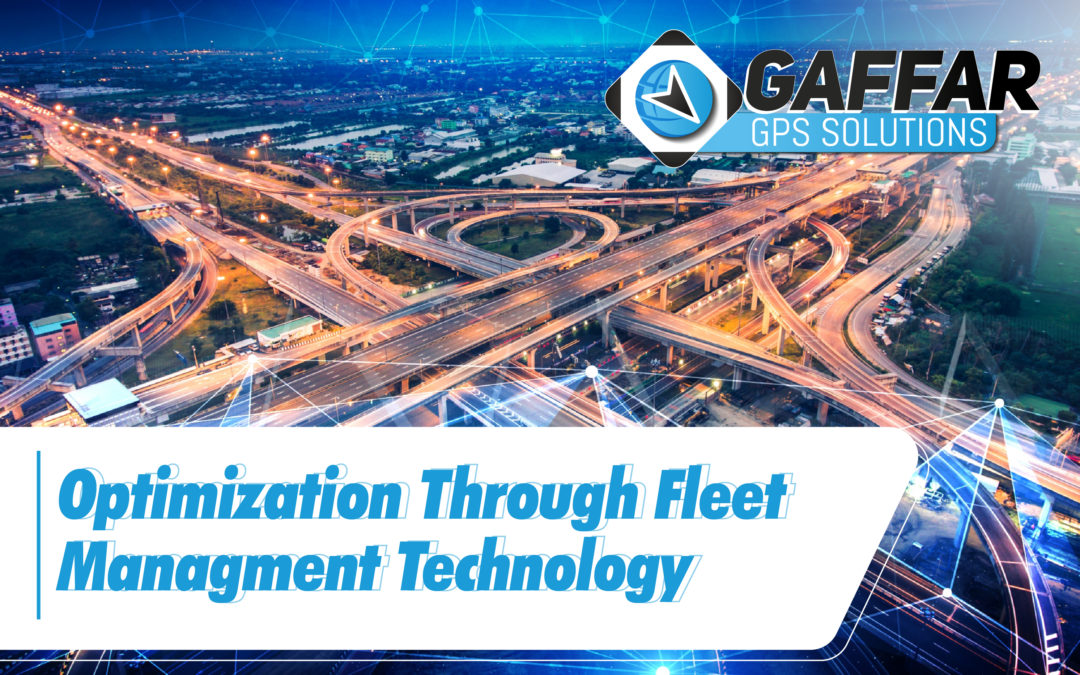We live in an era where technology has evolved and paper maps have been replaced with GPS-equipped vehicles, which is a prime example of how technology has changed the face of Fleet Management. However, it’s only the tip of the iceberg. The blend of connected devices, networks, and its consequent by-product of big data, creates a compelling impact on Fleet Management. The traditional way of operating the fleet industry – its productivity and its efficiency – have been disrupted as a result. Enter the Internet of Things (IOT), which has transformed sectors like retail, manufacturing smart homes and automobiles, Fleet Management is the latest to join the revolution, connecting vehicles and drivers to the enterprise system in real time. With intelligent fleet, it isn’t only the operators but construction, automobile, cargo companies and every other industry that employs drivers and delivery personnel. As the vehicles we drive get smarter, previously labour-intensive or manual processes have become automated, adding efficiencies that can be seen in asset utilization.
In addition to this, the “new normal” has coerced businesses to rethink, re-strategize and restructure their entire streamline of operations. With the IoT coming into play, it has an instrumental and vital role in providing a link between essential/nonessential workers and the remote world of work, which is crucial for organizations to survive and succeed while we still live through the COVID-19 pandemic. While more devices, people and date are connected, the opportunities in Fleet Management are also expanding exponentially. Companies that manage fleets have started using Fleet Telematics Technology to collect real-time information such as vehicle location, fuel usage, speed, mileage and insights into driver behavior.
So to what extent has technology modernized and optimized Fleet Management? Let’s consider some of the key factors IoT that have brought greater efficiencies and improvement to businesses that manage their fleet:
- Gain Better Visibility: Real-time visibility of the fleet allows managers to be aware of the location of their vehicles, while ensuring compliance with established routes and schedules. With the advanced IoT, managers are now able to gain an unprecedented level of insight into fleet performance and driver behavior with automated Fleet Management GPS Solutions.
- Reduce operational expenses: Regardless of what the goals are, reducing costs is on everybody’s mind. Each day, fleets generate relevant information like fuel consumption, miles logged, speed tracking and vehicle utilization.
- Analyze and understand collected data: Connected vehicles will help to minimize wasted miles and cut costs – whether its vehicle maintenance, product delivery, route planning, or dealing with traffic congestion and weather disruptions.
- Preventive Maintenance: Fleet Managers can also monitor the health of their fleet remotely from any place, using any device. One can ensure a vehicle’s longevity by providing preventative maintenance with alerts for service needs like low battery, check engine and other inspection reminders. Through these alerts, Fleet Managers will instantly be in the know of early warning signs of trouble, whether it’s an overheating engine, low fluids or declining oil-life. In addition to improving the efficiency of the maintenance cycle, costs can also be reduced by diagnosing problems and minimizing downtime as well. Maintenance is one of the biggest expenses that the fleet business incurs and its efficiency has a key impact on the profitability of the organization.
- Greener Operations: Unnecessary wear and tear is caused by factors like excessive idling time, taking longer routes and driving over the speed limit. This is more common than we’d imagine and results in extra fuel costs, apart from creating significant damage to the environment. For instance, developments in Fleet Management GPS can provide effective routing options to help vehicles transporting large, heavy loads or oil and gas.
- Enhanced Safety and Security: Fleet safety should be made a critical business value. Safety on the job should be instilled as a mandatory practice – not a convenience – especially for businesses with fleets. An intelligent Fleet Management GPS system can help to notify abuse of vehicle and hazard notification by collecting data such as speeding, harsh braking, vehicle maintenance scheduling status and vehicle location from a hardwired GPS receiver and prevent disasters beforehand. This data helps to reduce work-related risks and comply with health regulations, all this while ensuring the safety of employees, passenger vehicles and goods.
The need for smart Fleet Management has never been more imperative and the evolution of technology and the IoT have played a key role in adding efficiency to this sector. The growing demand for intelligent fleet systems will help save fuel, increase efficiency and improve productivity. Nevertheless, implementing systematic Fleet Management Technology can help you ensure smooth operations and an overall healthier organization.


Recent Comments